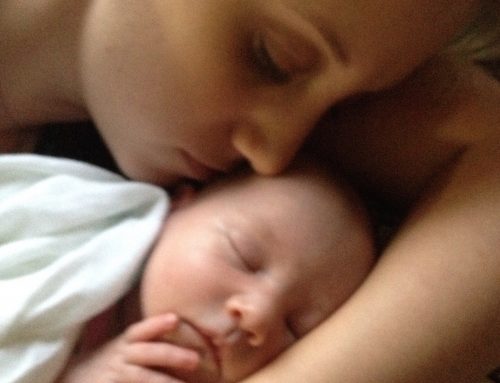Here’s a shortened excerpt from “Your Cherished Baby” about fathers. Especially about what happens when the new baby enters the home….
For the first few months after the birth of the baby many fathers feel somewhat excluded while the baby and mother huddle together, totally involved in each other. Nevertheless the presence and love of a father is essential for every baby and child to achieve their optimal development.
Biologically this is a time of maternal engrossment, where the mother and baby get the breastfeeding and their relationship bedded down. Though he may feel a little sidelined, his job as a father is to support the process, his baby and the mother. There are many ways in which he can do this to enhance this critical time for his family.
The father’s essential functions are:
- to love and care for his family
- to provide resources for mother and baby
- to be physically and psychologically available to them
- to engage directly with the baby
- to be patient with and support the mother
- to accept that they will not receive the same level of nurturing from their partner at least in the short-term, so
- to nurture himself.
REMEMBER:
- Security flows from father, to mother, to baby, and this is critical for relaxed and fulfilling parenting.
- As a father you can look after your baby very well, and much better than you think, as long as you give it a go.
- Holding a baby skin to skin against your chest is a wonderful feeling and this can give you practice at being aware of and in touch with your feelings. The warm touch of the baby can create a lifelong emotional bond if it is explored and maintained.
- Allow your natural tenderness to blossom and grow. This is a small advantage of having a daughter first – it gives fathers permission to be soft. Boys need this just a much, of course, so ignore the conditioning that tells you to treat them more boisterously.
- It is often necessary for a father to be proactive in handling his new baby, especially when the newcomer is surrounded by a group of needy female relatives who will happily push him aside to get their hands on the baby. It is important that the father asserts himself and his baby-handling qualities early on.
- Fathers tend to be much more physical with the little ones. It’s fathers who throw their babies into the air and catch them, not mothers.
- As the child starts toddling, fathers allow them to stray further than mothers, who tend to want to keep their babies close. Essentially fathers tend to limit freedom only for safety reasons.
- BOYS:
- the mere presence of a father in the house tends to improve cognitive learning and decrease the incidence of behaviour problems in boys.
- Father’s regular and active engagement with the child also tends to reduce aggressive behaviour later.
- Fathers should treat their sons gently, softly and show affection. Indicating to them that boys are tough people who hide their emotions and are wary of physical touching tends to yield dissatisfied and emotionally immature men.
- GIRLS:
- the presence of a father tends to decrease psychological problems in girls later; it also boosts their cognitive development.
- Girls who are emotionally close to their father have fewer weight and food problems later.
- Girls use their father as a role model for all males and as the gold standard by which others are judged.
- Fathers should teach their daughters to honour and respect themselves. They should be emotionally supportive, avoid negative criticism and not get too involved with their mistakes. Rough and abusive fathers tend to lead their daughters to form relationships with similar men.
BOTH GENDERS:
- Set aside time when you are alone with your child, no newspapers, computers or smartphones around.
- Listen to them, understand and empathise with them.
- Give them only enough information to get them started with their own deductive and processing abilities, then help them along with just enough information to keep them going, meanwhile staying involved (but ignoring their mistakes).
- Give praise and encouragement where appropriate.
- It is often not necessary to provide solutions to their issues. Listening is often enough. Then respect the child enough to allow them to find their own solutions with minimal guidance.
- ‘Daddy fix it’, although tempting, can be a response that diminishes the child.












Hi Howard,
With two young daughters, what you have shared here is gold.
With Thanks
Brendan Jones